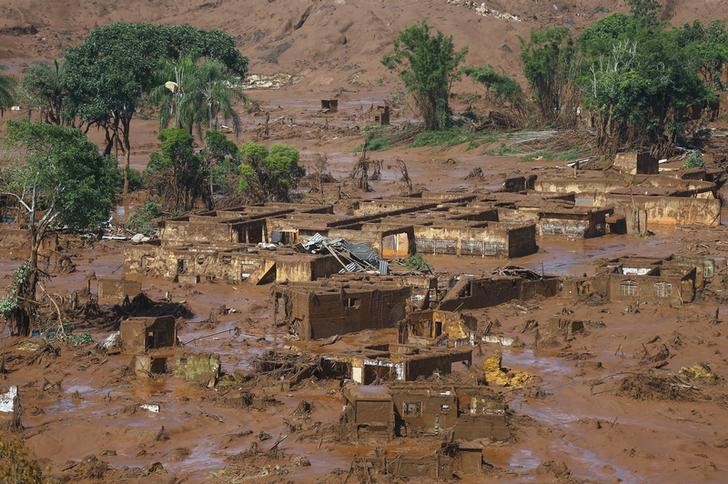RIO DE JANEIRO, Dec 8 (Reuters) - The Brazilian government and responsible mining companies must do more to ensure access to safe drinking water after a dam burst at a mine in early November and polluted a major river, a United Nations official said on Tuesday.
"The Government must strengthen its monitoring of both raw and treated water, improve water treatment, and disseminate clear information to the population," Léo Heller, U.N. special rapporteur on the human right to safe drinking water and sanitation, said in a statement.
The burst dam released about 60 million cubic meters of water and thick mining waste, equivalent to 25,000 swimming pools, in Brazil's worst-ever environmental disaster.
The mud flowed into the Rio Doce river, across two states, and into the Atlantic Ocean. At least 15 people were killed, and thousands of dead fish washed up on the river's banks.
Several cities along the river had their water supply cut off as a result of the mud flow.
Mine operator Samarco, which is co-owned by Brazil's Vale SA VALE5.SA and Australia's BHP Billiton BLT.L , trucked in water, but Heller said the actions were insufficient, and hundreds of thousands of people were still suffering interruptions to their water supply.
"There is growing discontent due to the poor management of this water crisis, which has already generated some violent incidents and could lead to further unrest," he said.
Samarco, Vale, BHP Billiton and Brazilian authorities did not immediately respond to requests for comment.
Tests have also shown high levels of toxic materials, such as arsenic and cadmium, in the river water after the dam burst, leading to concerns about potential health issues.
"Understandably, people are worried about the quality of the water coming from the restored water supply system," Heller said. "They are also frustrated by the inconsistent and inadequate information on the safety of the water provided by the different authorities."
